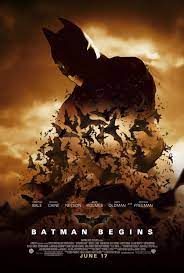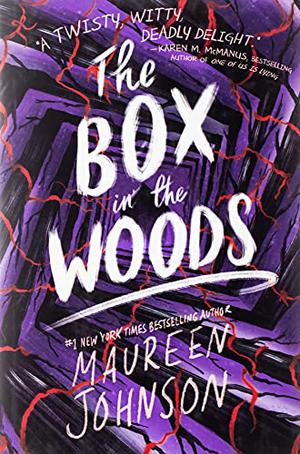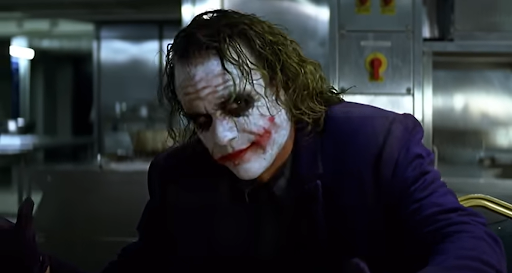
The D.C. comic book villain Joker has been performed by many people in both live-action and animated series/movies. However, out of all the different actors who played the role of The Joker, the two most memorable were Heath Ledger and Joaquin Phoenix. I believe Ledger played the villain more authentically than Phoenix’s version.
The most important, and major, difference between Heath Ledger’s and Joaquin Phoenix’s Joker was that Phoenix portrayed a sociopathic Joker while Ledger portrayed a psychopathic Joker.
I am not a professional psychologist to officially say or diagnose either version of The Joker as a psychopath or sociopath. However, I can lay out the differences between the two. This will give you more insight into why I believe The Jokers are portrayed as one or the other.
According to Therapist.com, a sociopathic person is caused by “childhood trauma, abuse, neglect, or impoverishment.” Not everyone becomes a sociopath, it’s all based on environmental factors. Do not think everyone who has experienced trauma or abuse in their childhood will become a sociopath because that is not true.
According to Psychology Today and Healthline, traits of a sociopath include antisocial and manipulative behaviors, dishonesty, deceit, aggression, irritability, acting upon impulse, lack of regard for safety, having difficulty feeling guilt, and trouble forming emotional relationships/attachments.
Unlike sociopaths, psychopaths are born the way they are, and like sociopaths, they also display antisocial and manipulative behavior, just in a more extreme manner than sociopaths. Psychopaths typically base their actions on logic and reasoning rather than impulsive behavior.
Taking Phoenix’s Joker as an example, he was a sociopath.
He suffocated his mother with a pillow because he felt betrayed when he figured out that she stood aside and let her boyfriend abuse him when he was a child.
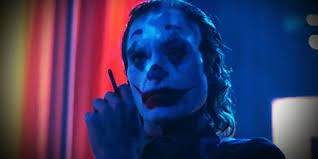
Phoenix’s Joker was very messy with his murders, making it feel like he only did the things he did in the heat of the moment or from sheer stupidity. He killed his mom because he felt betrayed by her.
The Joker, in my eyes, is meant to be a mystery. One without identity to keep the viewers wondering, but also entertained by his dark humor, theatrical behavior, and grand gestures for attention.
I see The Joker as someone who couldn’t care less about what another person thought of him but wouldn’t take disrespect from anyone. He’d also want the world to see his actions and know he was the one who committed them, not another person; he wants the credit for his work.
Ledger’s portrayal of the Joker was characterized by maintaining an aura of mystery, a stark contrast to Phoenix’s version. He deliberately concealed details such as his real name, identity, personal history, and even the origins of his distinctive attire.
Ledger’s Joker’s mysterious aura made him more intriguing, and his acting kept me more entertained and interested in the movie to continue watching, unlike Phoenix’s. Ledger brought a sense of originality to his portrayal of The Joker, which made it fun to watch.
Ledger did multiple things to prepare for his role. One of the most notable preparations was his six-week period of self-isolation, where he became immersed in method acting, creating a character diary for The Joker and experimenting with different tones of voice.
The diary was filled with a handful of things dedicated to his portrayal, including clippings of D.C. comics that had The Joker, references to the fictional psychopath Alex DeLarge from “A Clockwork Orange,” pictures and notes of hyenas, which played a heavy contribution to his Joker laugh, and words and phrases such as ‘chaos’ and ‘kill the Batman.’
In the end, his preparations paid off nicely, even if they were a bit odd. His method acting and improvised scenes made the movie a lot more enjoyable to watch.
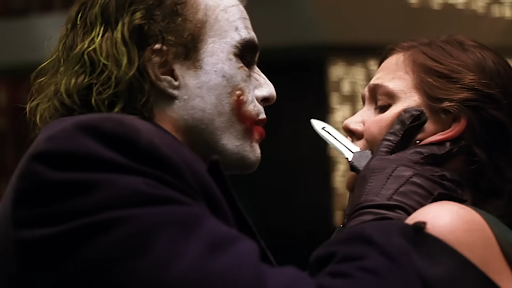
For example, there was a scene in “The Dark Knight” where The Joker crashed Bruce Wayne’s party and started to make a scene. When Rachel Dawes (Maggie Gyllenhaal) decided to step up against The Joker threatening a party member, Ledger went off script. He was so immersed in the role of The Joker that he improvised a major part of the scene. He made up a different story about how he got his Glasgow smile scars, he grabbed Maggie’s face and got up close and personal, not letting her go even when she tried to pull away. The actress was genuinely terrified which made the scene able to be shot in one take.
Throughout the movie, there are multiple examples of Ledger’s sadistic and psychopathic nature, from blowing up cars with a bazooka to planting a phone call-activated bomb in someone’s gut.
Ledger made The Joker really come to life, making him the best portrayal of the character. He was dedicated to his role and made how I find the Joker to be. It was almost as if my thoughts of how I see the Joker were taken and put on screen. Ledger’s Joker was original and authentic, he might’ve been playing a character that was made in the 40s’, but Ledger showed the world a new and improved version of The Joker.
“The Dark Knight” is the movie to watch for an unforgettable, authentic, and darkly humorous Joker.


